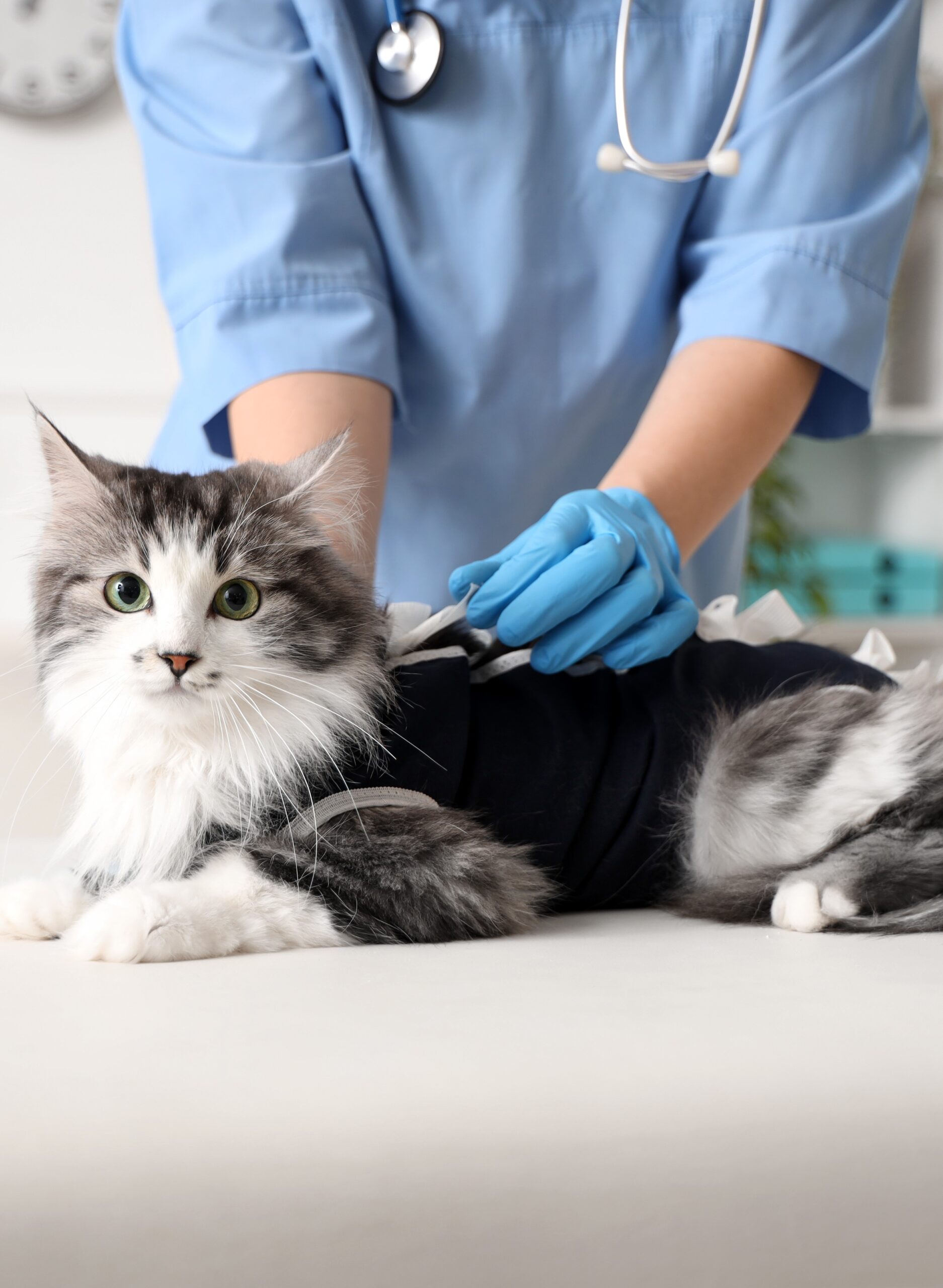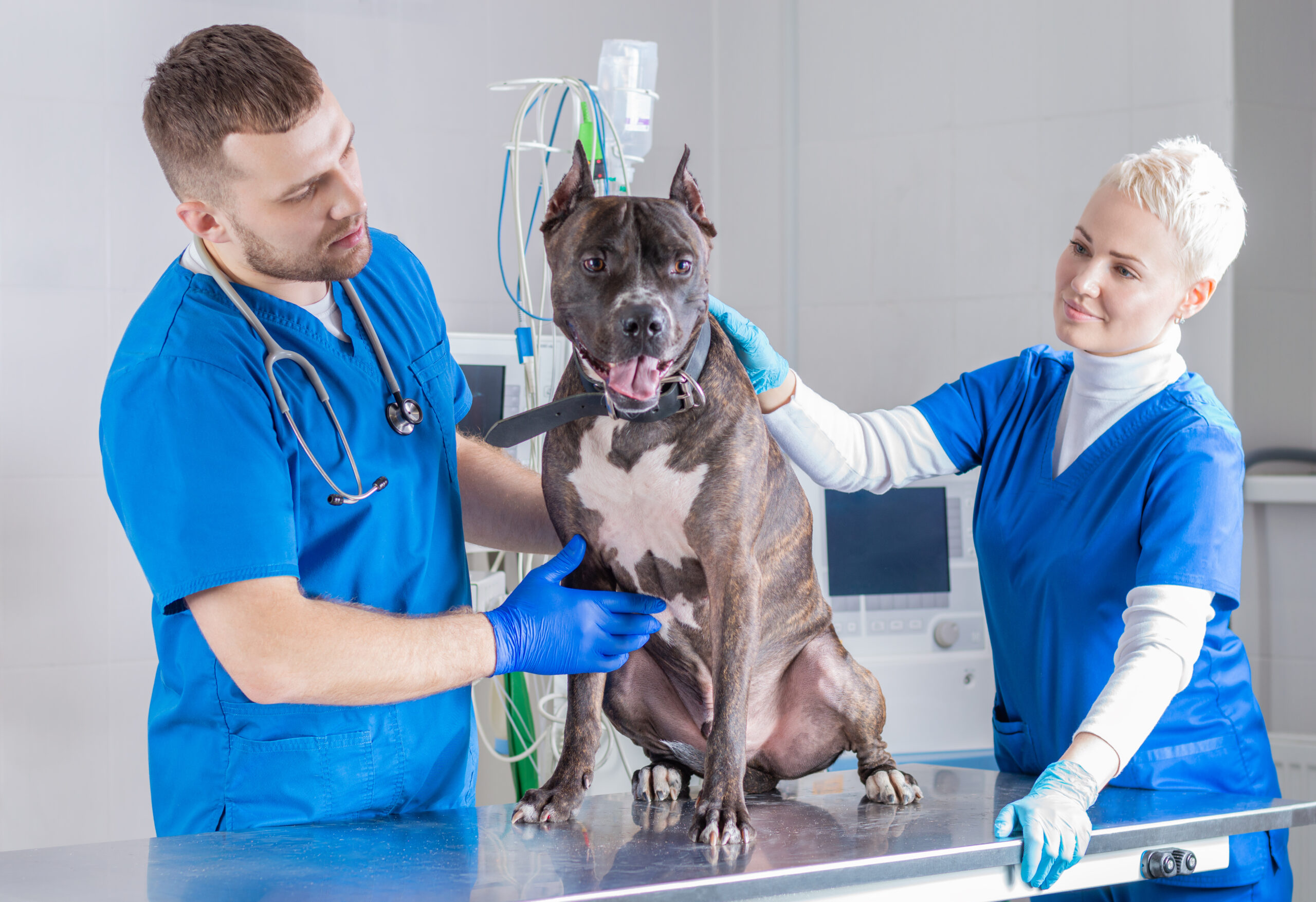What qualifications do I need to be a Veterinary Support Assistant?
Everything about the qualifications you need to become a Veterinary Support Assistant
Embarking on a career as a veterinary support assistant is an incredibly rewarding journey, offering the chance to make a real difference in the lives of animals and their owners. In this role, you’ll be at the heart of veterinary care, providing essential support to vets and nurses while ensuring that every animal receives the highest standard of care.
As a veterinary support assistant, your days will be filled with variety – from assisting in surgical procedures to comforting anxious pets and their worried owners. This position not only demands compassion and dedication but also offers immense personal satisfaction as you contribute to the wellbeing of animals. With an increasing demand for skilled professionals in this field, now is the perfect time to consider stepping into this vital role within veterinary practice. Whether you’re passionate about animal welfare or seeking a fulfilling career path that combines hands-on work with meaningful impact, becoming a veterinary support assistant could be your ideal next step.
In this Veterinary Support Assistant qualifications guide
Qualifications to be a Veterinary Support Assistant
If you’re considering a career as a Veterinary Support Assistant, understanding the qualifications required is crucial. While formal education isn’t always mandatory, having relevant qualifications can significantly enhance your prospects and readiness for the role.
Typically, employers look favourably upon candidates with GCSEs in subjects like English, Maths, and Science. These foundational skills are essential for understanding medical terminology and performing basic administrative tasks effectively. Additionally, obtaining a diploma or certificate in animal care or veterinary support can provide you with valuable knowledge about animal health and welfare.
Practical experience is equally important. Volunteering at animal shelters or gaining work experience in veterinary practices can give you hands-on exposure to the day-to-day responsibilities of a Veterinary Support Assistant. This experience not only strengthens your CV but also demonstrates your commitment and passion for working with animals.
Furthermore, possessing strong communication skills is vital as you’ll be interacting with pet owners and working closely with veterinarians. A compassionate nature combined with an ability to handle stressful situations calmly will also serve you well in this rewarding field.
In summary, while specific qualifications might vary by employer, having a solid educational background coupled with practical experience will set you on the right path towards becoming a successful Veterinary Support Assistant.
What qualifications are needed to be a Veterinary Support Assistant?
To embark on a rewarding career as a Veterinary Support Assistant (VSA), it’s essential to understand the qualifications required and the roles you will undertake in this vital position. The journey begins with acquiring the appropriate credentials, which typically range from Level 2 to Level 4 qualifications.
Level 2 Veterinary Support Assistant Qualifications
At Level 2, you can start with a basic Animal Care qualification, providing you with foundational knowledge about animal health and welfare. This level is perfect for those new to the field, offering insights into basic animal handling and care techniques.
Level 3 Veterinary Support Assistant Qualifications
Progressing to Level 3 involves more specialised training. A Diploma in Veterinary Nursing or an equivalent qualification equips you with practical skills necessary for assisting veterinarians during procedures, understanding animal anatomy, and managing clinical environments effectively. This level prepares you for more hands-on responsibilities within veterinary practices.
Level 4 Veterinary Support Assistant Qualifications
Level 4 qualifications are designed for those seeking advanced expertise and leadership roles. These might include certifications in advanced veterinary nursing or specific areas such as anaesthesia or surgical nursing. At this stage, you’re not only supporting veterinarians but also taking on supervisory duties, mentoring junior staff, and ensuring high standards of patient care are maintained.
The role of a VSA is multifaceted; it involves preparing animals for surgery, maintaining clean environments, assisting during procedures, administering medications under supervision, and providing compassionate care to both animals and their owners. By advancing through these qualification levels, you’ll be well-prepared to handle the diverse challenges of a VSA role while contributing significantly to animal healthcare teams across the UK.

Professional bodies for a Veterinary Support Assistant
Joining a professional body can be an invaluable step towards enhancing your skills and staying informed about industry developments. In the UK, several esteemed organisations offer support, resources, and networking opportunities tailored to veterinary professionals.
One key organisation is the British Veterinary Nursing Association (BVNA). As the representative body for veterinary nurses and support staff in the UK, BVNA provides access to continued professional development (CPD) programmes, industry news, and events that keep you abreast of advancements in veterinary care.
Another notable organisation is Vetpol. While primarily aimed at practice managers and paraprofessionals within veterinary practices, Vetpol offers resources that are beneficial for Veterinary Support Assistants aiming to broaden their understanding of practice management and client care.
The Association of Pet Behaviour Counsellors (APBC) might also be of interest. Although focused on behaviour counselling, APBC membership can provide insights into animal behaviour that are crucial for any role within a veterinary setting.
By becoming part of these professional bodies, you not only gain access to valuable educational materials but also join a community dedicated to excellence in animal care. This affiliation underscores your commitment to your profession and ensures you remain at the forefront of best practices in the field.
Training fees to become a Veterinary Support Assistant
When deciding to pursue a career as a Veterinary Support Assistant, understanding the training fees involved is crucial. The costs can vary depending on the level of qualification you aim to achieve.
For those starting with a Level 2 course, fees are generally more accessible, often ranging from £300 to £800. This foundational level provides essential skills and knowledge for entry-level positions.
Advancing to Level 3 involves more comprehensive training and thus comes with higher fees, typically between £1,000 and £2,500. This level equips you with deeper insights into veterinary care and prepares you for more responsibilities within a practice.
For those aspiring to reach Level 4 qualifications, which offer advanced expertise and can lead to supervisory roles, the investment increases significantly. Fees at this stage can range from £3,000 to £5,000 or more. This level of training not only enhances your skill set but also boosts your career prospects in the veterinary field.
Investing in these courses is an investment in your future career as a Veterinary Support Assistant—each level offering valuable skills that open doors to new opportunities within veterinary practices across the UK.

Getting experience to be a Veterinary Support Assistant
Gaining experience to become a Veterinary Support Assistant is an essential step in pursuing a rewarding career in animal care. One of the most effective ways to acquire this experience is through volunteering at local animal shelters or veterinary clinics. By offering your time, you not only gain hands-on experience but also demonstrate your commitment and passion for working with animals.
Another valuable approach is to pursue internships or work placements, which can provide you with practical insights into the day-to-day responsibilities of a Veterinary Support Assistant. These opportunities often allow you to shadow experienced professionals, learning vital skills such as handling animals safely, assisting with medical procedures, and managing administrative tasks.
Additionally, enrolling in relevant courses or workshops can significantly enhance your knowledge base and make you more appealing to potential employers. Many institutions offer specialised programmes that cover essential topics like animal anatomy, basic veterinary procedures, and customer service skills tailored for the veterinary environment.
Networking within the industry can also open doors to new opportunities. Attending industry events or joining online forums dedicated to veterinary careers allows you to connect with professionals who might offer advice or alert you to job openings.
By actively seeking out these experiences and educational opportunities, you’ll build a robust foundation that will not only help secure a position as a Veterinary Support Assistant but also prepare you for future advancement within the field.



